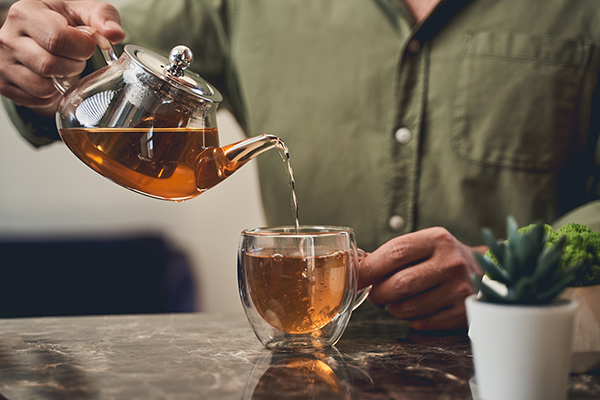The Best Teas for Coffee Drinkers
Are you trying to kick your coffee habit but still need a pick-me-up in the morning? Many people turn to tea as a healthier alternative.
In this article, we’ll explore some of the best teas with the highest caffeine content to replace coffee, as well as a few herbal teas that may have a similar taste profile.
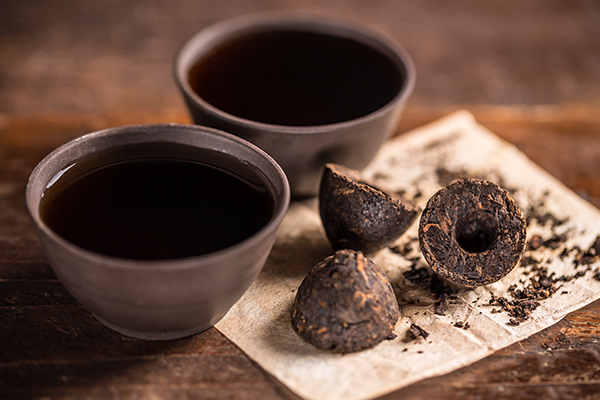
Caffeine-Rich Teas to Energize Your Mornings
Black Tea
As the most oxidized tea, black tea contains the highest caffeine content of all the tea types. A cup of black tea has around 40-70 mg of caffeine, which is roughly half the amount found in coffee. Popular black teas to replace coffee include English Breakfast, Earl Grey, and Assam.
Interested in trying black tea? Here are our top picks.
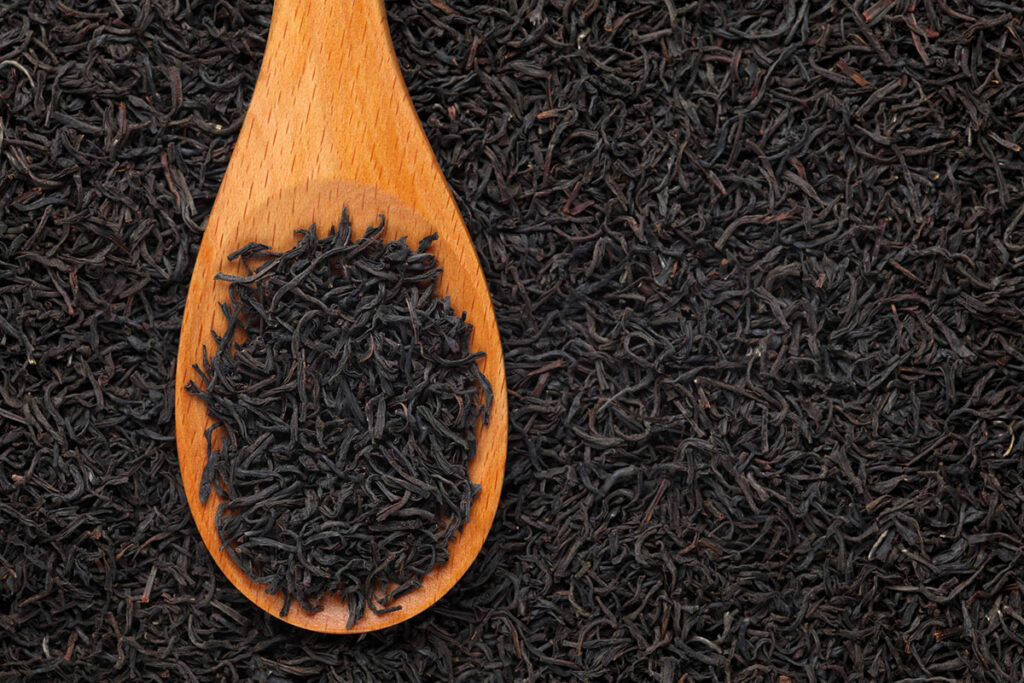
Pu-erh Tea
Pu-erh tea is a unique type of fermented tea from the Yunnan province in China. With a caffeine content ranging from 30-70 mg per cup, pu-erh tea can be an excellent coffee replacement for those who enjoy bold and earthy flavors. This tea comes in two forms: raw (sheng) and ripe (shou), each offering a distinct taste.
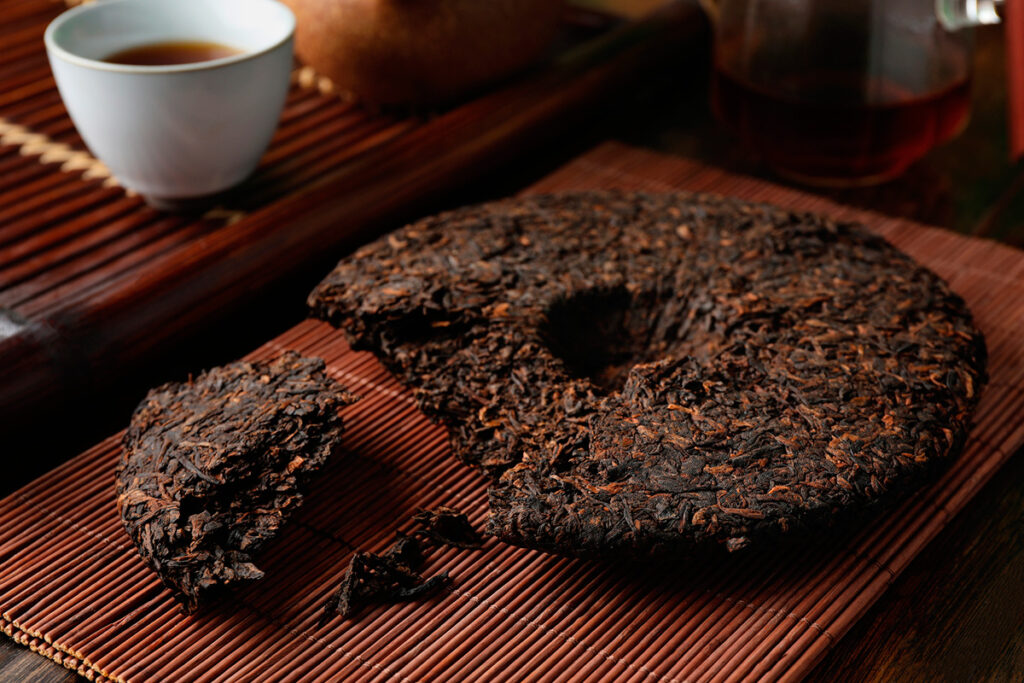
Matcha
Matcha is a finely ground green tea powder with a vibrant green color and a higher caffeine content compared to traditional green tea. A cup of matcha can contain between 35-70 mg of caffeine, providing a powerful energy boost. The frothy, rich taste of matcha makes it a popular choice for coffee lovers seeking a healthier alternative.
Interested in trying matcha? Here are our top picks.
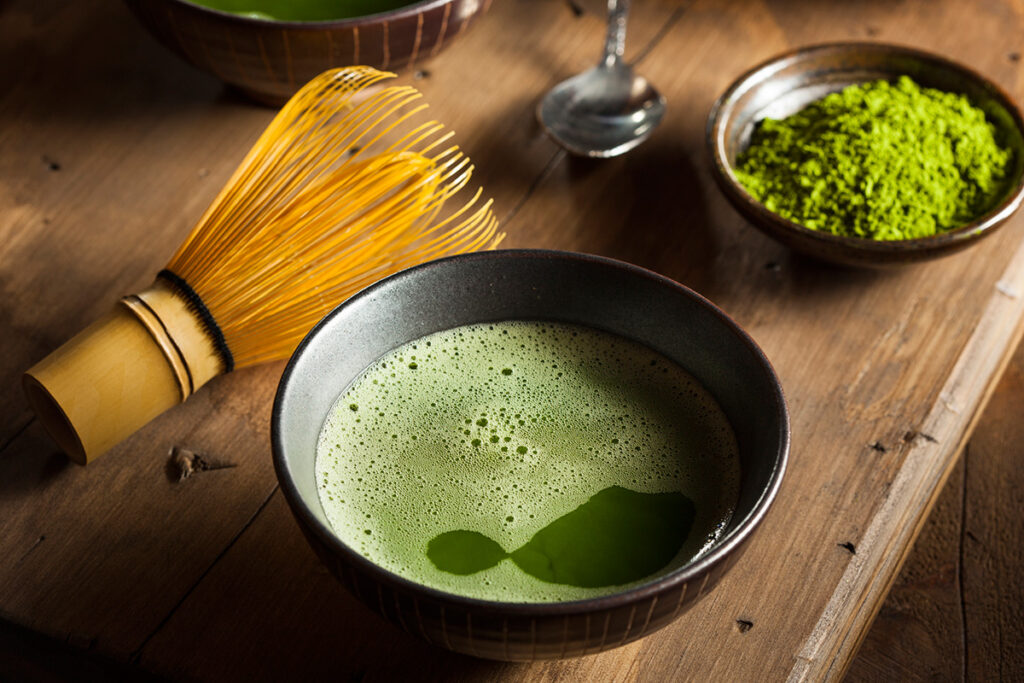
Yerba Mate
Yerba mate, a traditional South American drink, is made from the leaves of the Ilex paraguariensis plant. It has a unique, earthy flavor and contains 30-50 mg of caffeine per cup. Yerba mate is an excellent alternative for those seeking a coffee substitute with a different taste.
Interested in trying yerba mate? Here are our top picks.
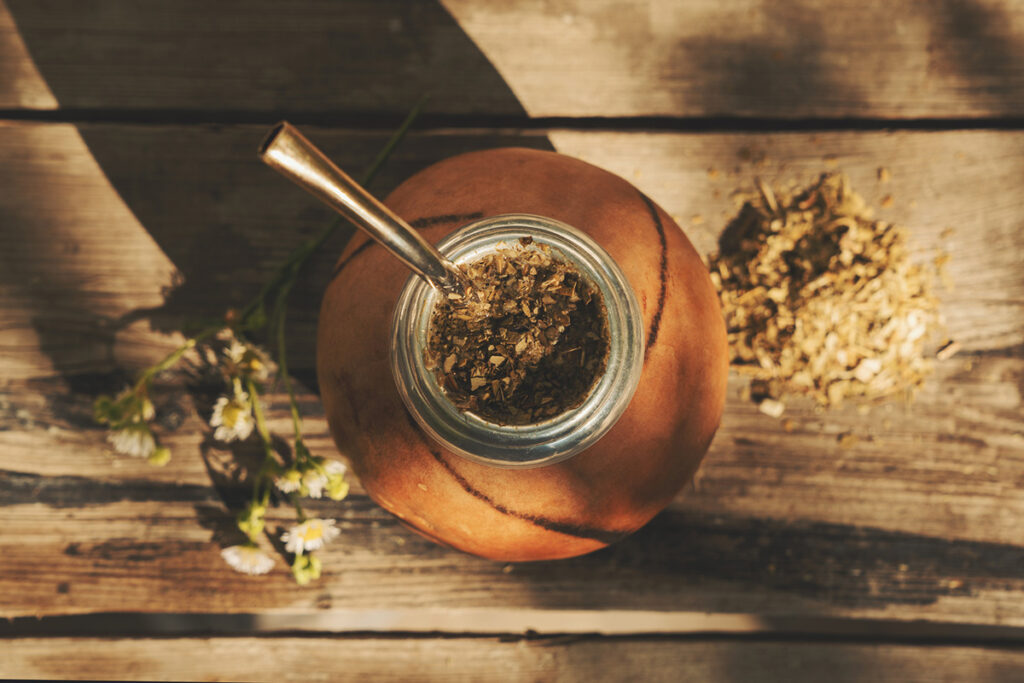
Guayusa
Guayusa is a naturally caffeinated plant native to the Amazon rainforest. It contains around 50 mg of caffeine per cup, making it a potent option for those looking to replace coffee. Guayusa also has a smooth, naturally sweet flavor that is quite different from traditional tea.
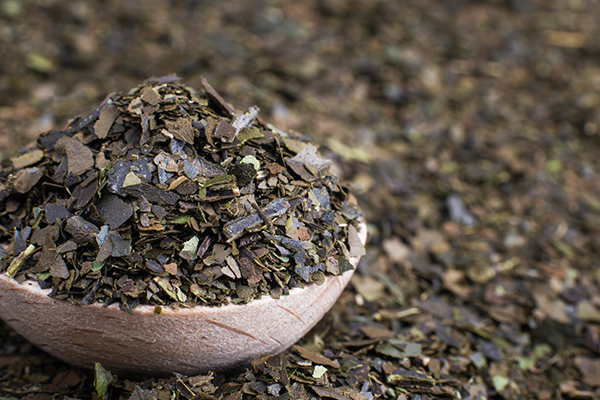
Herbal Teas That Taste Similar to Coffee
While herbal teas don’t have caffeine, they can offer a satisfying coffee-like taste. Here are some herbal teas that can help you make the transition from coffee.
Chicory Root
Chicory root is a popular coffee substitute due to its rich, earthy flavor and dark color. Although it doesn’t contain caffeine, chicory root can be used on its own or blended with other teas to create a coffee-like experience.
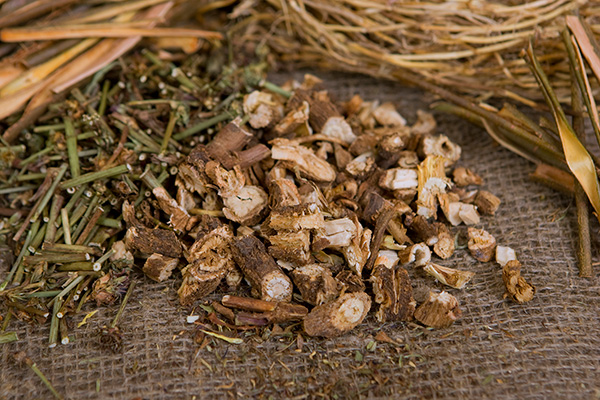
Dandelion Root
Dandelion root tea has a nutty, slightly bitter taste that can resemble coffee. The roasted version, in particular, has a rich, earthy flavor that can satisfy your coffee cravings without the caffeine.
Interested in trying dandelion tea? Here are our top picks.
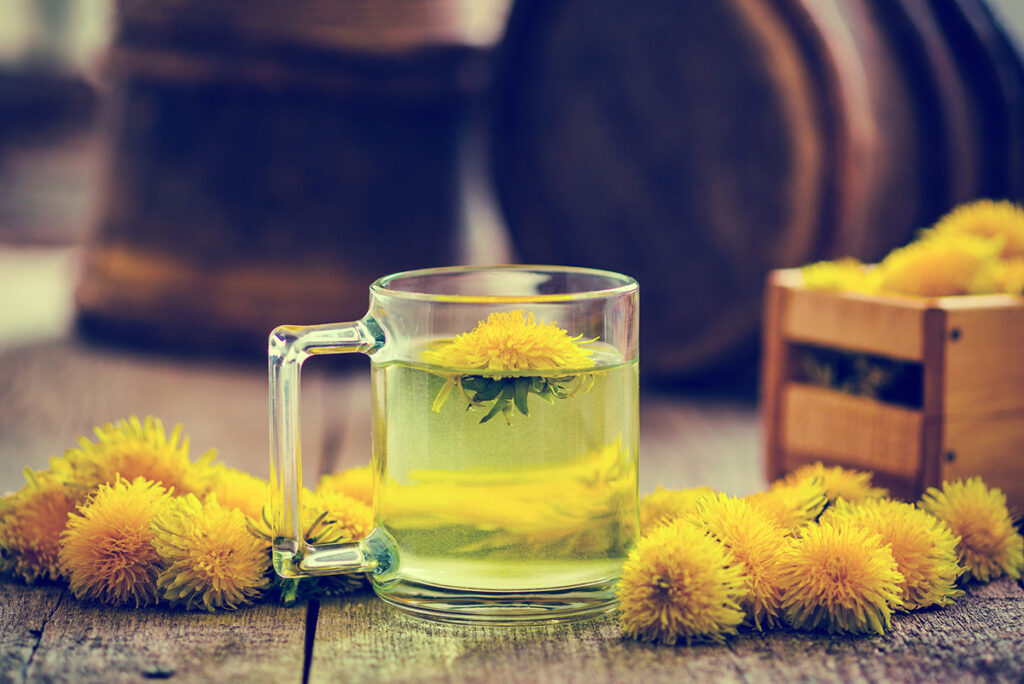
Carob
Carob is a caffeine-free, naturally sweet plant that can be brewed into a tea or mixed with other herbs to create a coffee-like beverage. Its chocolatey flavor and natural sweetness make it an excellent choice for those with a sweet tooth.
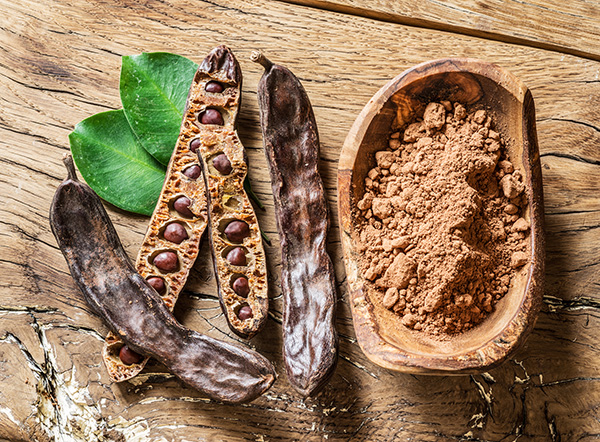
Barley Tea
Also known as mugicha, barley tea is a caffeine-free, roasted grain beverage with a toasty, slightly bitter flavor reminiscent of coffee. While it may not offer the same energy boost, it can be a comforting and satisfying substitute.
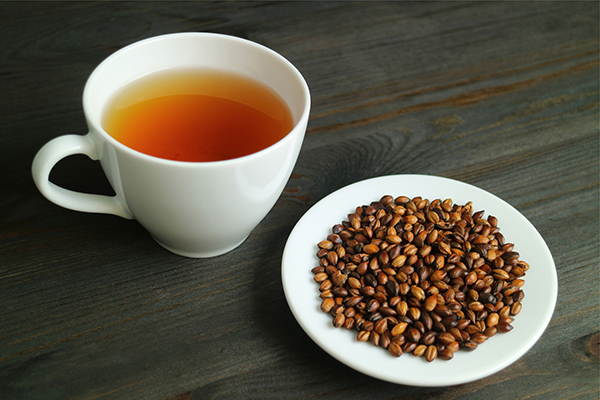
Tips for Transitioning from Coffee to Tea
Switching from coffee to tea can be a smooth process if you follow these helpful tips:
- Gradual Transition: Don’t go cold turkey on coffee. Instead, gradually replace one cup of coffee with tea each day until you’ve made the full switch. This will help you avoid withdrawal symptoms and make the transition more comfortable.
- Experiment with Different Teas: With so many tea varieties available, it’s essential to try different types to find your favorite. You may discover that you enjoy different teas at different times of the day or based on your mood.
- Learn Proper Brewing Techniques: The taste of tea can vary significantly depending on how it’s brewed. To fully enjoy your tea experience, learn about the proper brewing techniques for each tea type, including water temperature, steeping time, and tea-to-water ratio.
- Embrace the Health Benefits: Many teas offer significant health benefits, including antioxidants, improved digestion, and reduced stress. Keep these benefits in mind as you make the switch, and you’ll likely find that tea becomes a cherished part of your daily routine.
- Be Patient: Changing habits takes time, so be patient with yourself as you adjust to your new morning ritual. As you become more familiar with tea and its flavors, you’ll likely find it easier to replace coffee and enjoy the benefits of a healthier, more balanced lifestyle.
In Conclusion
Whether you’re looking for a high-caffeine alternative or a caffeine-free beverage with a similar taste, tea offers a wide range of options to replace coffee. As you explore the world of tea, remember that patience, experimentation, and proper brewing techniques are key to finding the perfect cup to start your day.
Happy sipping!



